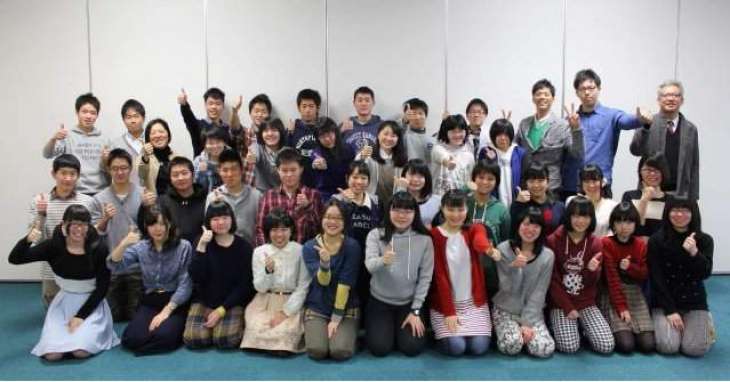Learning Russian language in Japanese schools is a very rare phenomenon, but the Toyama prefecture, from where Japanese goods are shipped to the Russian port city of Vladivostok, promotes the language of Pushkin and Tolstoy
TOYAMA (Japan) (Pakistan Point news / Sputnik - 25th February, 2019) Learning Russian language in Japanese schools is a very rare phenomenon, but the Toyama prefecture, from where Japanese goods are shipped to the Russian port city of Vladivostok, promotes the language of Pushkin and Tolstoy.A Sputnik correspondent found out what these lessons look like at the Takaoka High School in the Toyama prefecture.
The school headmaster, Masasuke Yamahana, said that Russian had been taught at the school for many years.
"We are a port city, many of those who are engaged in foreign trade live here, and, given the importance of future relations between Russia and Japan, it was decided to teach Russian," Yamahana said.
According to him, the decision was made not by the authorities of the prefecture, but by the local community.
Oksana Bondarenko, who has lived in Toyama since 1994, begins the Russian language lesson at Takaoka High School.
"A compulsory second foreign language in our school is either Chinese, or Korean, or Russian," Bondarenko said.
According to her, in addition to compulsory English, 60 percent of school students chose Korean, 30 percent attend classes in Chinese and 10 percent prefer Russian language.
"I prepare the program by myself. In this class, we have a textbook that I developed myself. This year, in March, second-grade children will go to Russia for an internship in Vladivostok. The internship is included in the annual program," the teacher noted.
Bondarenko added that besides her, there was another Japanese woman who taught Russian.
Children in this class are learning Russian for the second year. The classes are held three times a week. Students cannot speak Russian fluently, but they already understand simple phrases and words.
Students in the class are divided into teams named Shark, Kangaroo, Bison and Zebra, and start playing a learning game. This time they learn the Names of different colors in Russian.
Using a special application on their smartphones, students guess one or the other color, and a big LCD screen shows which team is taking the lead. As soon as the team makes a mistake, the results are reset and the game restarts. Children enjoy their victories and clap their hands.
In order to consolidate what was learned, Bondarenko asks the students what colors do they like the most.
After the game and exercises, Bondarenko turns on the recording of a song named Polyushko-polye, which many people in Japan know and love. Children record the song on their smartphones so they could learn it later. Lyrics of the song are printed in Russian and Japanese languages, and every student receives a paper with it.
Children sing the song in Russian line by line, repeating after the teacher, who shows not only brilliant pedagogical skills, but also musical ones.
In order to develop even higher speech skills among the pupils, Bondarenko asks to read Russian tongue twisters, and children seem happy to learn them.
Toyama prefecture is actually located in the heart of Japan on the coast of the Sea of Japan. Its Fushiki-Toyama port connects cargo flows of Japanese companies with Vladivostok.




